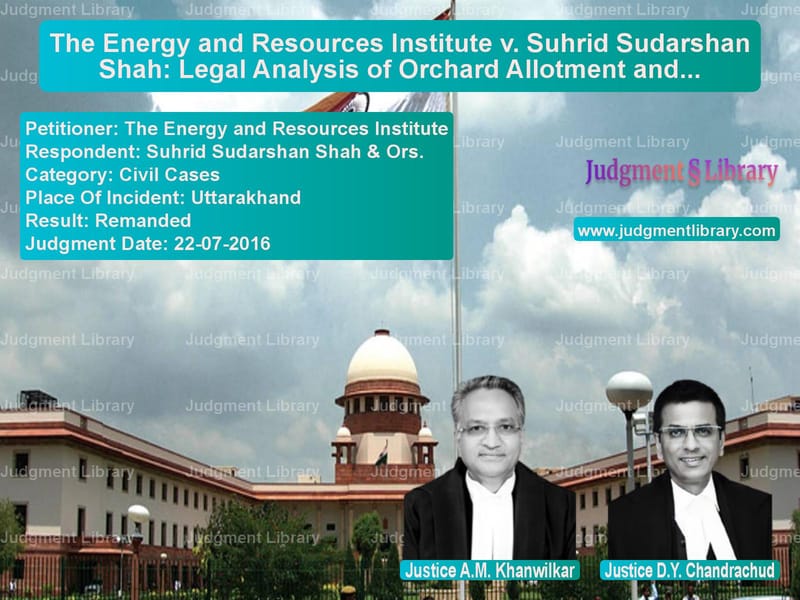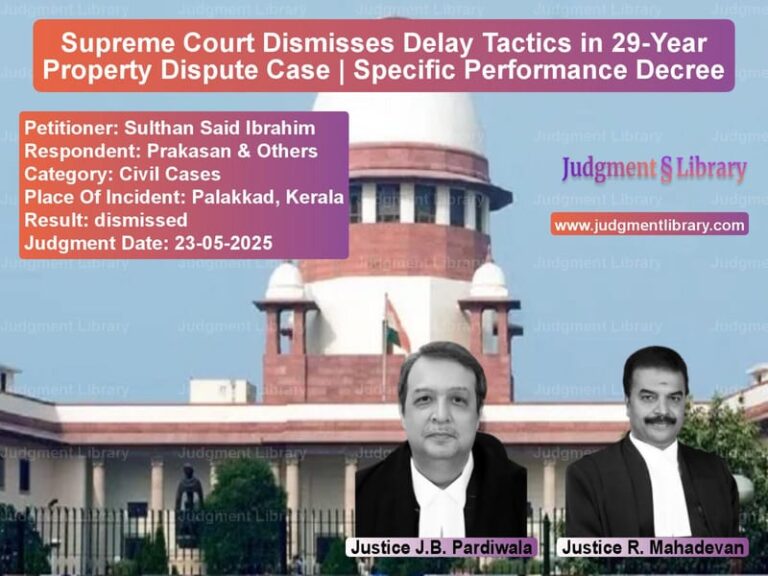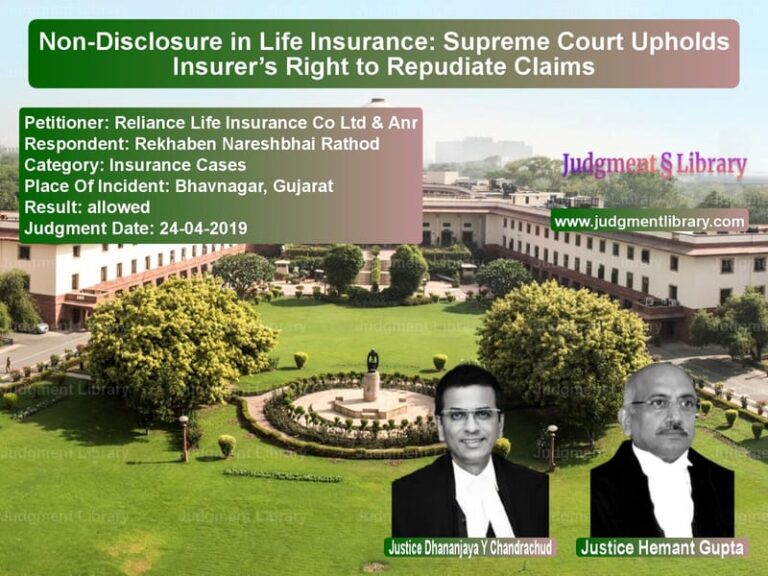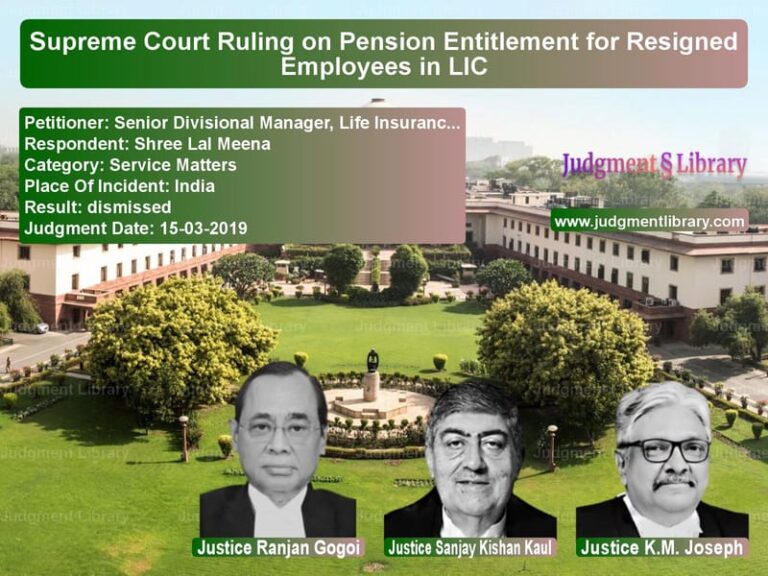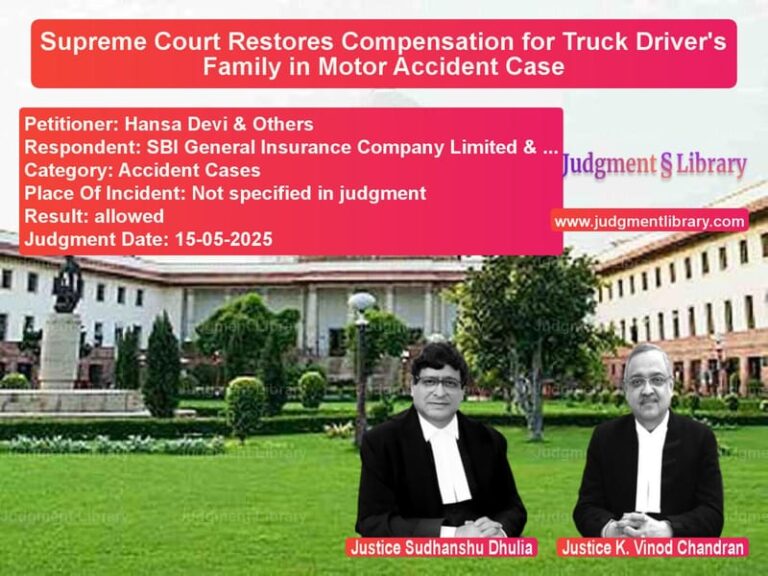The Energy and Resources Institute v. Suhrid Sudarshan Shah: Legal Analysis of Orchard Allotment and Lease Grants
The case involves a legal dispute over the allotment of government orchards in Uttarakhand, which were leased to private parties. The Energy and Resources Institute (TERI), formerly known as Tata Energy Research Institute, is one of the appellants who challenged the High Court’s decision to invalidate the grants and lease deeds in their favor. The appellants argue that the lease agreements were made based on a well-defined policy to attract private investment for the development of unproductive orchards. The High Court had previously quashed the grants, and the matter was brought before the Supreme Court for reconsideration.
Introduction:
This legal dispute revolves around the allotment of government orchards in Uttarakhand, which were leased to private individuals and organizations, including TERI. The controversy stems from the allegation that the orchards were leased without following due process and that the lease agreements were not in the public interest. The appellants argue that the grants were made following a policy aimed at improving the management and productivity of the orchards. The respondents, including Suhrid Sudarshan Shah, a public interest litigant, challenge the legality and fairness of the process, contending that the allotments were irregular and did not benefit the state.
Petitioner’s Arguments:
The appellants, TERI and the legal heirs of Akhilesh Kala, argue that the allotment of orchards was made following a transparent process, with a well-established policy of the Uttarakhand government aimed at attracting private investment to revitalize unproductive land. They assert that the government suffered significant losses from the management of these orchards, and the decision to lease them was made in the public interest. TERI, in particular, argues that it has adhered to all the terms of the lease, including the development of horticulture education and the planting of medicinal herbs, which would benefit the local community. They also claim that the High Court erred in not fully considering the legal and factual aspects of the case and in quashing the grants without sufficient analysis of the public interest involved.
Respondent’s Arguments:
The respondents, including Suhrid Sudarshan Shah, argue that the allotment of the orchards was improper and violated the principles of transparency and fairness. They contend that the government orchards were given to private parties without following the necessary procedures, including public auction. The respondents further argue that the grants to private parties, including TERI, did not benefit the public and were merely a means for the private parties to exploit state resources. They also point out that the original allotments were made without adequate scrutiny or accountability, and the local community did not derive any tangible benefits from the lease agreements.
The Court’s Analysis:
The Supreme Court, in its analysis, reviews the process by which the orchards were leased to private parties. The Court notes that the state government had formulated a policy to lease the orchards in an effort to make them productive and beneficial to the public. However, the Court also highlights that the High Court had rightly questioned the fairness of the process, particularly with regard to the lack of public auction and transparency in the selection of lessees. The Court examines the lease agreements and the benefits promised to the local community, noting that the terms of the lease required the lessees to contribute to local development and horticultural education. However, the Court finds that these promises were not adequately fulfilled, as evidenced by the lack of inspections and failure to meet the lease conditions.
The Court further emphasizes the need for due diligence in the allocation of public resources and the importance of ensuring that such leases serve the public interest. The Court also considers the arguments raised by the appellants regarding the legality of the grants, noting that while the grants were made in the context of a policy, the implementation of that policy was flawed in certain respects. The Court concludes that the matter should be reconsidered by the High Court with a more thorough examination of the public interest involved and the legal validity of the lease agreements.
Conclusion:
The Supreme Court allows the appeals and remands the matter to the High Court for further consideration. The Court directs the High Court to review the legality of the grants in favor of TERI and the legal heirs of Akhilesh Kala, taking into account the public interest and the fulfillment of the lease conditions. The Court also emphasizes the need for the High Court to provide a detailed analysis of the case, addressing the legal and factual issues raised by the appellants. The appeals are allowed with no order as to costs, and the matter is remanded for fresh consideration.
Don’t miss out on the full details! Download the complete judgment in PDF format below and gain valuable insights instantly!
Download Judgment: The Energy and Resou vs Suhrid Sudarshan Sha Supreme Court of India Judgment Dated 22-07-2016-1741873334675.pdf
Direct Downlaod Judgment: Direct downlaod this Judgment
See all petitions in Contract Disputes
See all petitions in Property Disputes
See all petitions in Damages and Compensation
See all petitions in Judgment by A M Khanwilkar
See all petitions in Judgment by Dhananjaya Y Chandrachud
See all petitions in Remanded
See all petitions in supreme court of India judgments July 2016
See all petitions in 2016 judgments
See all posts in Civil Cases Category
See all allowed petitions in Civil Cases Category
See all Dismissed petitions in Civil Cases Category
See all partially allowed petitions in Civil Cases Category

